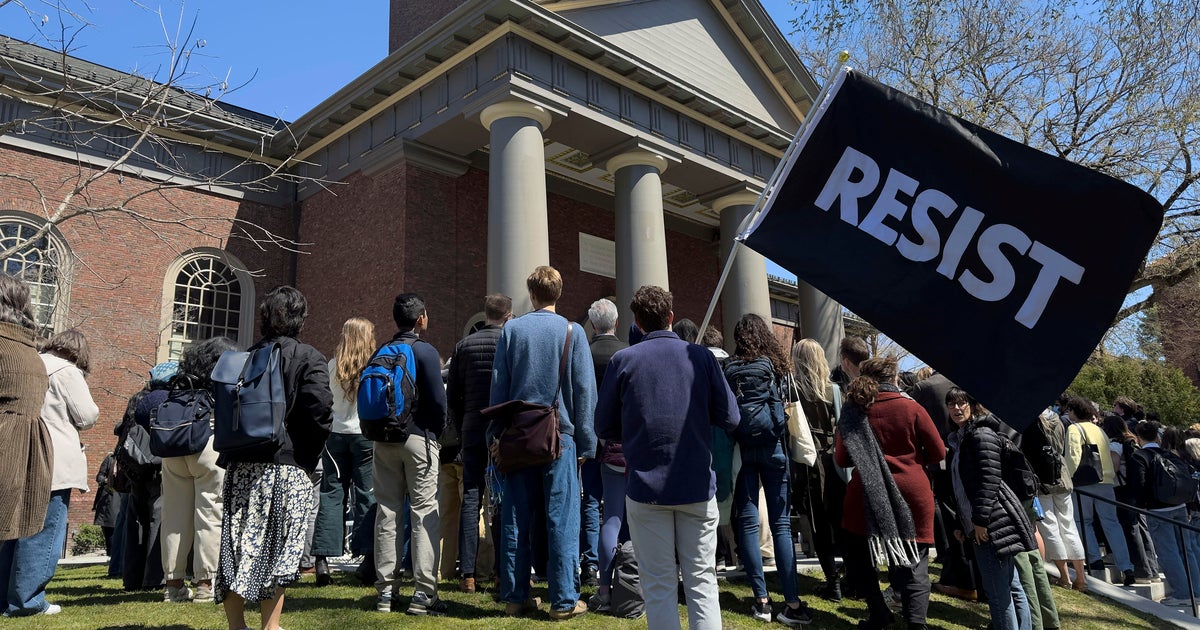In a striking development from Washington, President Donald Trump announced on Friday his intention to revoke the tax-exempt status of Harvard University. This decision exacerbates an already tense relationship between the current administration and the prestigious Ivy League institution. The president expressed his determination via a Truth Social post, stating, “We are going to be taking away Harvard’s Tax Exempt Status. It’s what they deserve!” This bold statement did not come with any additional details regarding the methods or the timeline that the administration will employ to remove Harvard’s status as a 501(c)(3) organization.
Previously, President Trump hinted at this potential action just last month, hinting at his dissatisfaction with the university’s operations or policies. Generally, approximately 2 million entities in the United States enjoy tax-exempt status. These include a diverse group of organizations such as charities, churches, environmental groups, and educational institutions like Harvard. This status not only exempts these organizations from paying federal income taxes but also makes donations to them tax-deductible, as per the regulations of the Internal Revenue Service (IRS).
Responding to the news, Harvard President Alan Garber voiced concerns over the legality of such a move by the Trump administration. In an interview with the Wall Street Journal, Garber stated, “If the government goes through with a plan to revoke our tax-exempt status, it would…be highly illegal unless there is some reasoning that we have not been exposed to that would justify this dramatic move.” He articulated the detrimental impact this could have on the university’s mission of education and research, which would be “severely impaired” if the tax-exempt status were lost.
The legal framework under the tax code strictly prohibits executive branch officials from directing IRS employees to initiate or halt an audit or investigation targeting a specific taxpayer. This raises significant questions about the feasibility of President Trump’s plans under current laws. Furthermore, a Harvard spokesperson criticized the proposed action severely, suggesting that it would pose a serious threat to the university’s educational mandate. The spokesperson explained that removing Harvard’s tax-exempt status would result in less financial aid for students, abandonment of crucial medical research programs, and a decrease in opportunities for innovation.
Trump’s targeting of Harvard is not new. Last month, his administration froze significant federal funds directed towards the university, totaling approximately $2.2 billion in grants and $60 million in contracts. This decision followed Harvard’s rejection of various demands from the administration, which included modifications to its diversity, equity, and inclusion programs, hiring practices, and leadership structure. Following this financial freeze, Harvard initiated legal proceedings against the Trump administration, alleging that the action was unlawful. Withdrawal of Harvard’s tax-exempt status is expected to further escalate legal confrontations.
Additionally, the Department of Homeland Security has also thrown its weight into the fray by demanding Harvard disclose information on certain foreign student visa holders. This condition needs to be met if Harvard wishes to retain its certification in the Student and Exchange Visitor Program, which is crucial given the more than 6,700 international students enrolled as of the last report. Homeland Security Secretary Kristi Noem also accused Harvard of fostering an environment that does not sufficiently condemn antisemitism, creating a hostile atmosphere for Jewish students.
CBS News had reported last month that the IRS was contemplating the revocation of Harvard’s tax-exempt status after President Trump publicly criticized the school for allegedly misusing the privilege. Despite this, White House spokesperson Harrison Fields emphasized that any action taken by the IRS would operate independently from presidential influence, referencing President Trump’s earlier comment suggesting a loss of Harvard’s tax status.
This series of confrontations and accusations comes despite Harvard’s impressive contribution to education and research. The university boasts an endowment of $52.3 billion, the largest of any U.S. university. It provided over $749 million in financial aid and scholarships in the 2024 fiscal year alone. Furthermore, a significant portion of the funding that supports research at Harvard is sourced internally from the university.
The ongoing feud between the Trump administration and Harvard University has drawn considerable attention, stirring debate on the limits of executive power, the autonomy of educational institutions, and the essential role of tax-exempt status in fostering educational and research missions. As this complex situation continues to evolve, it is likely to become a key issue of debate in policy-making circles and the broader public arena, touching upon fundamental questions of governance, law, and education policy in the United States.









